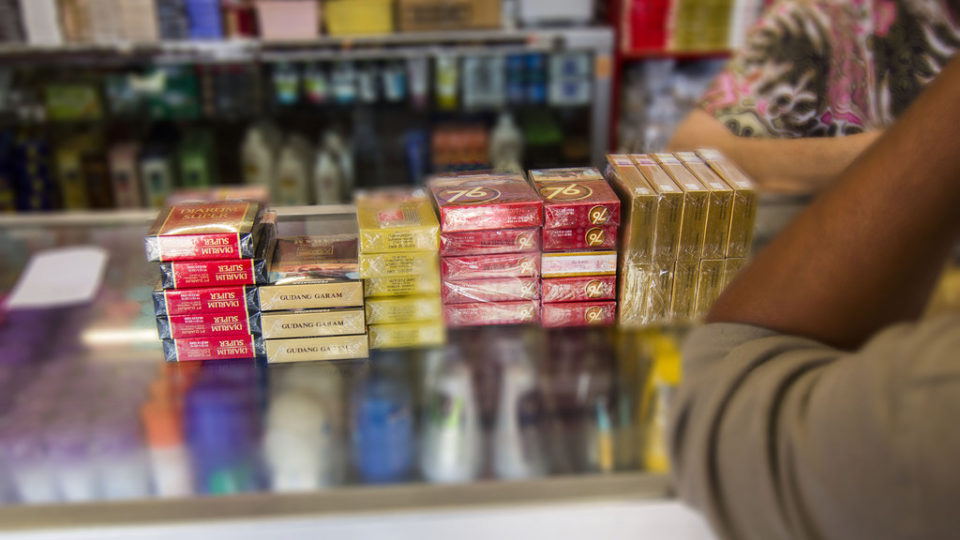One of the main factors contributing to Indonesia having some of the highest smoking rates in the world is the relatively low cost of cigarettes, which keep them within the reach of even the country’s poorest citizens. The government has shown little political will to raise cigarette excise prices to decrease demand, but the results of a new survey indicates that it’s something that the vast majority of Indonesians actually want.
The National Commission on Tobacco Control and the Center for Social Security Studies at the University of Indonesia (PKIS-UI) recently conducted a survey of Indonesians, including representatives percentages of active smokers, former smokers and non-smokers, and found that 88% of respondents supported increasing the price of cigarettes.
“Support for making the price of cigarettes expensive does not only come from non-smokers but also from smokers themselves, as evidenced by the the results of the survey conducted by PKJS-UI in May 2018 of 1,000 respondents,” said PKJS-UI Research Team member Renny Nurhasanah at a press conference in Jakarta yesterday as quoted by Kompas.
Currently, the average price of a pack of cigarettes in Indonesia is around IDR 17,000 per pack (US$1.20). The survey asked smokers how expensive cigarettes would have to become to make them quit and 66% said they would quit if packs became IDR 60,000 per pak and 74% said they would quit if they became IDR 70,000 per pack.
These survey results came just days after the government touted new economic data showing that poverty levels in Indonesia reached a historic low in March 2018 of 9.82% (the first time it had dropped below the 10% mark). However, that same data showed that cigarettes remain one of the primary causes of poverty among low-income families.
In fact, the PKJS-UI survey showed that respondents from lower income households tended to have significantly higher rates of smoking. Those with a family income of less than IDR 2.9 million had smoking rates of 44.61% while those with income levels between IDR 3 million and IDR 6.9 million were 41.88%. Smoking rates of those from households with incomes of over IDR 7 million were only 30.91%.
At the survey’s press conference, the head of communications for the National Team to Accelerate Poverty Reduction (TNP2K), Ruddy Gobel, said that a steep increase in cigarette prices was needed not just for health reasons but to fight poverty.
“We agree the government should raise the price of cigarettes as high as possible as one of the concrete steps towards reducing cigarette consumption among the poor,” he said as quoted by Detik. “That money can then be diverted towards the purchasing of nutritious foods, education and healthcare costs which in turn can contribute to poverty alleviation.”
Despite over 200,000 people dying of tobacco-related diseases in Indonesia each year, the disastrous health impacts of tobacco addiction have not been enough to get the government to increase prices or pass any significant anti-smoking regulations at the national level. Perhaps the poverty argument will prove more persuasive to the government.
Unfortunately, based on empirical evidence, that seems unlikely. Government officials and tobacco industry lobbyists have consistently been able to hold off stricter rules and higher tariffs on cigarettes by arguing that the economic benefits that tobacco brings to Indonesia outweigh the negatives. They often focus on the plight of poor tobacco farmers who might be put out of work if the government were to crack down on smoking (though some will admit to the crucial importance of tobacco excise taxes to government revenue).
But the real pressure comes from foreign-owned tobacco companies who seek to keep Indonesia’s cigarette market growing strong to offset their losses in countries that wised up and made cigarettes expensive and hard to access long ago as comedian John Oliver explained in this brilliant segment (also featuring an appearance by Indonesia’s infamous smoking baby)





